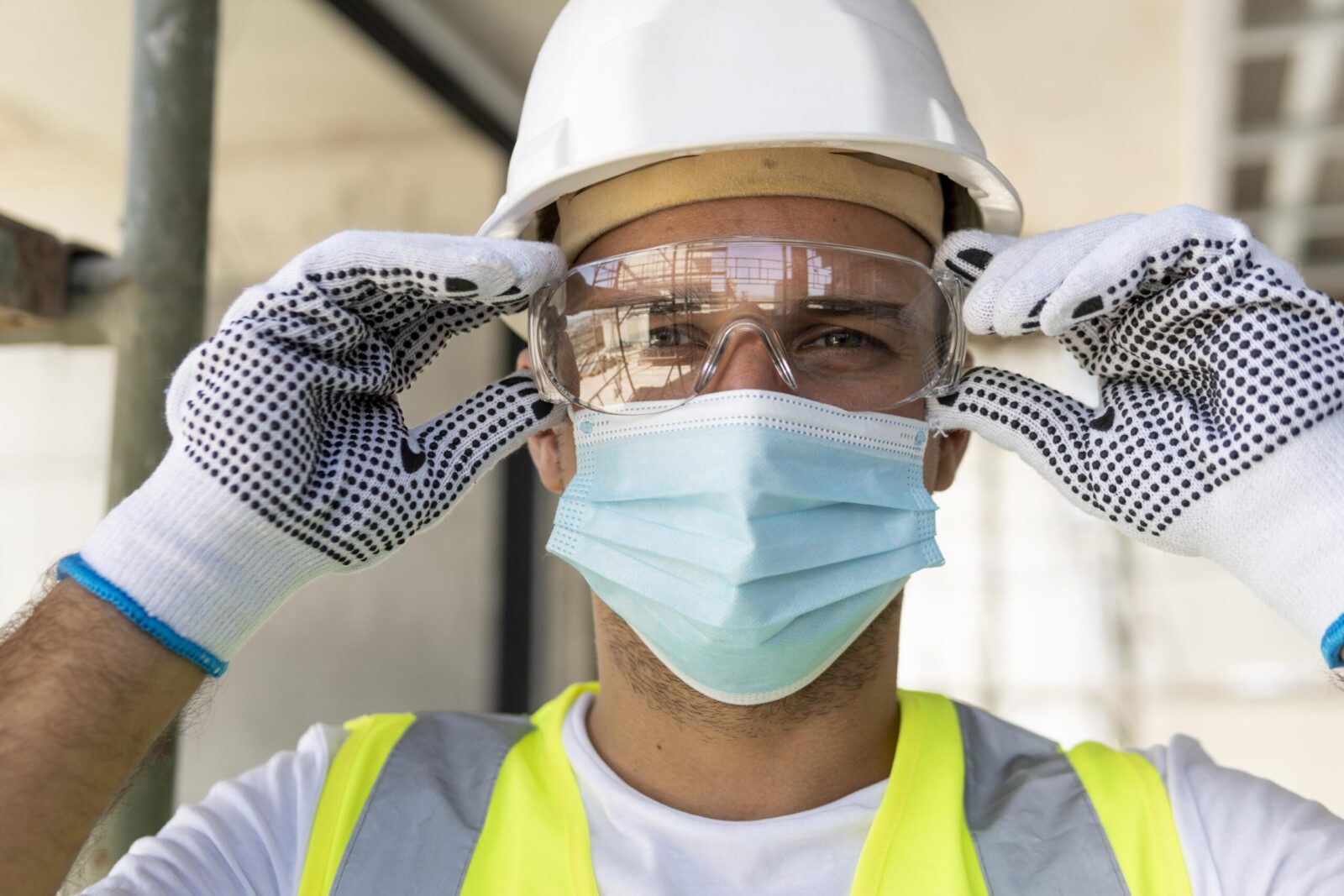
Essential PPE in the Food Industry: What You Need to Know
Overwhelmed by PPE options for food safety? Master your PPE selection for food workers safety with these practical tips.

Get 20€ off on your first order!
If your safety glasses fog up during work, it can be a hassle. But don’t worry—we’ve got simple, effective solutions to keep your lenses clear.
By the end of this guide, you’ll know why fogging happens and how to prevent it. We’ll cover options like anti-fog glasses, sprays, proper ventilation, and tips for maintaining your glasses for long-lasting clarity.
With advice from experts, you’ll easily find the right solution, whether you wear glasses daily or occasionally. Plus, we’ll help you tackle the next challenge in your PPE setup.
For an in-depth overview of choosing the right safety glasses, check out our main guide: How To Choose Safety Glasses – A Buyer’s Guide.
Fogging occurs due to condensation, which happens when warm, moist air comes into contact with a cooler surface, a natural process that can be managed with the right strategies. Work environments with humidity, temperature shifts, or physical activity often contribute to fogging. This is particularly common when wearing safety glasses in environments with temperature fluctuations or high humidity. For professionals in construction, healthcare, or laboratory settings, clear safety glasses support efficient workflows and reliable safety.
By understanding the causes, you can better choose preventive measures tailored to your work environment.
Investing in anti-fog safety glasses can provide a long-term solution. These glasses come with coatings that prevent moisture buildup. Explore our curated selection of anti-fog safety glasses in the Safety Glasses category.
Adding specific examples of anti-fog solutions like Optix 55 or other trusted brands could provide readers with actionable options. If purchasing new glasses isn’t an option, applying anti-fog sprays or wipes to your existing eyewear is a practical alternative. These products create a protective layer that reduces condensation.
Proper ventilation around your eyes enhances comfort and minimizes the possibility of fogging. Features like side vents or indirect venting systems in safety glasses are particularly effective. This can be achieved by:
The fit of your safety glasses plays a significant role in preventing fogging. To ensure a proper fit, measure the width of your face and choose glasses with adjustable nose pads or temples. Ill-fitting glasses can trap warm air, increasing the likelihood of condensation.
Regular cleaning not only improves visibility but also enhances the effectiveness of anti-fog measures. Use a microfiber cloth and lens-specific cleaners to avoid scratches.
If you’re wearing a mask, ensure it fits snugly around your nose to prevent warm air from escaping upward. This can be achieved by:
Safety glasses are just one piece of a comprehensive personal protective equipment (PPE) setup. Depending on your needs, you may also consider:
For more detailed buying guides, explore:
| Solution | Pros | Cons | Best For |
| Anti-Fog Safety Glasses | Long-lasting, no reapplication needed | Higher upfront cost | Frequent, long-term users |
| Anti-Fog Spray/Wipes | Affordable, easy to apply | Requires frequent reapplication | Occasional use, budget-friendly |
| Vented Glasses | Passive solution, no maintenance | May not suit all environments | Hot or humid work conditions |
We hope this guide has been helpful in navigating the key strategies for keeping your safety glasses fog-free, from anti-fog coatings to proper ventilation techniques. Whether you’re working in a high-humidity environment or wearing a mask, we’re here to support your needs for clear vision and enhanced safety.
Explore our Safety Glasses category and anti-fog solutions at Droppe, where trusted brands are available to meet your specific needs.
For further insights, don’t miss our main guide: How To Choose Safety Glasses – A Buyer’s Guide.
Have questions or need advice on choosing the right eyewear? Don’t hesitate to reach out—we’re always here to help ensure your safety and satisfaction with every purchase.
– The Droppe Team
While some home remedies like soap or shaving cream may help temporarily, we recommend using specialized anti-fog solutions for long-lasting results.
Clean your glasses regularly with a microfiber cloth and lens cleaner to maintain clarity and prevent dirt buildup, which can affect anti-fog treatments.
Yes, anti-fog coatings can wear off after frequent use. Reapply anti-fog sprays or consider upgrading to anti-fog glasses for long-term protection.
Absolutely! Anti-fog sprays and wipes work well on prescription glasses, just make sure to choose products safe for coated lenses.
Vented safety glasses or anti-fog glasses with durable coatings are ideal for outdoor work, as they balance protection with airflow to minimize fogging.
Thank you! You've signed up for our newsletter.



















Overwhelmed by PPE options for food safety? Master your PPE selection for food workers safety with these practical tips.

Struggling to maintain clear vision in demanding environments? This guide is here to help. By the end, you’ll know exactly...

Electricians across Europe face unique challenges that require reliable safety glasses to ensure both protection and efficiency. Whether safeguarding against...

Overwhelmed by PPE options for food safety? Master your PPE selection for food workers safety with these practical tips.

Struggling to maintain clear vision in demanding environments? This guide is here to help. By the end, you’ll know exactly...

Electricians across Europe face unique challenges that require reliable safety glasses to ensure both protection and efficiency. Whether safeguarding against...
Get 10€ off on your first order!
Save 30% by buying directly from brands, and get an extra 10€ off orders over €100
Save 30% by buying directly form brands, and get an extra 10€ off orders over €100